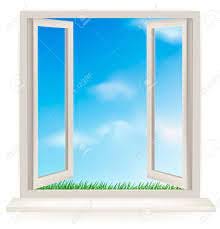The Shape of Moral Imagination
Values as historical contructs
We come into this world with two fixed variables that are largely, if not entirely, beyond our control. The first is our temperaments—our introversion or extroversion; our craving for comfort or novelty, and the like. This factor is largely biological, though the way it manifests itself in a particular moment may vary. The second is the ideological climate of our time, which no one person can control and which exerts a gravitational pull over all of us. A temperamentally conservative adolescent will be temperamentally conservative in the 1960s as well as the 1980s, but the hair of that person is likely to be longer in the late sixties than in the late eighties. A sexually adventurous person will be sexually adventurous in the 1950s, but it will be a whole lot easier to do so in the 1970s—or the 2020s. You get the idea. I’m basically talking about the Overton Window.
Regardless of who they are, or when they are, people have to contend with an elemental source of friction in their lives: the gap between ideals and realities. As Samuel Huntington explained in his brilliant 1981 book, American Politics: The Promise of Disharmony, it’s always there, though the size of that gap and how much tolerance there is for it will vary between and within individuals at a particular time. But at any given moment specific realities (like good economic times, or a state of war) will shape responses to that gap, whether or not an individual perceives oneself as in a majoritarian or minoritarian position. And while there will always be a varied set of ideals that compete for loyalty in a population, there will often be one that succeeds in becoming the defining goal of a time, however surging or waning its intensity.
The defining ideal of our time is equality. Its historical roots in contemporary American society are racial: the Civil Rights movement has defined our collective imagination in the last half-century. In our official social discourse, that which we think tends toward equality is embraced as good, while that which tends toward inequality is decried as bad. Over time, the ambit of the equality ideal has widened to include class, sex, gender, and other aspects of everyday life. The historical basis of equality as a goal in America is rooted in Christianity, whose radical premise was the embodiment of God in fallen human form and which defined the country even as the separation of church and state—a Protestant invention—shaped the nation’s political culture. But this referent has largely been submerged and even rejected, even as it continues to provide the basis of secular morality. Indeed, it’s hard to fashion a sturdy foundation for antiracism in America without it. Actually, it’s difficult to formulate a durable moral basis of life that is somehow not grounded in the divine, however much one may wish to avoid the subject, a desire that happens to be increasingly prevalent in polite culture at the moment, where secularity is one of those values that is waxing.
Of course, it is in the nature of ideals that we find ourselves falling short of them—very often because we secretly want to fall short of them. We may lament that some of us are paid more than others, for example, but we rarely challenge such realities, especially those of us who are beneficiaries of inequality. We speak of necessary evils; we note our relative powerlessness as individuals to do all that much. There is often considerable plausibility to such assertions (or murmured implications). But we nevertheless sometimes experience guilt and shame, which can occasionally lead to ameliorative action.
Here's my point: social ideals operate in dynamic environments. When environments change, so do preferred ideals—and the way people relate to them. They can disappear entirely, or recede in the face of competitors that may achieve (always temporary) dominance. In American history, it has often been freedom—which has sometimes proceeded in tandem with equality, and at others in direct opposition to it—that has proven to be a hardy organism in national life. Others, like order (more common in Asian cultures) have also lurked, and may well surge as the social weather deteriorates, as many observers assert is happening in our national ecosystem. We would do well to understand the power of these alternatives, to acknowledge their legitimacy for those whose temperaments may be different, but not necessarily worse, than ours.
Which is not to say we need to act like ideological weathervanes. The essence of human existence lies in a capacity for existential choice amid the plethora of forces beyond our control. It is when we understand who we are not as a matter of common sense, but rather an act of fidelity to a notion that we consider the best prevailing truth, that we are most fully alive. This may involve acting on our deepest impulses, or finding the strength and courage to resist them. Life is tricky that way. An education helps—to a point.
So what, within that tight ambit, what do you choose? Why?

